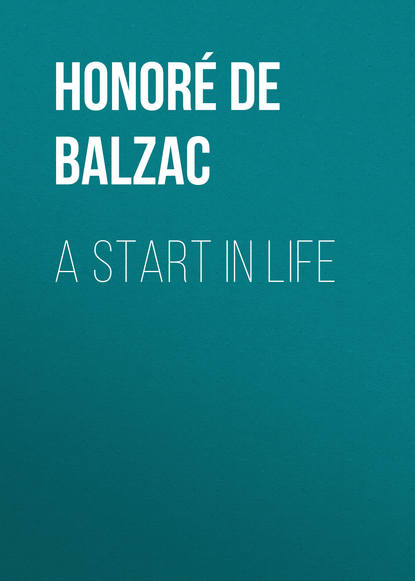По всем вопросам обращайтесь на: info@litportal.ru
(©) 2003-2024.
✖
A Start in Life
Настройки чтения
Размер шрифта
Высота строк
Поля
“Parbleu! I’ve too many – shares! that’s just what I wanted to sell.”
By this time they had arrived at Saint-Leu-Taverny, where all the passengers got out while the coach changed horses. Oscar admired the liveliness which Pierrotin displayed in unhooking the traces from the whiffle-trees, while his driver cleared the reins from the leaders.
“Poor Pierrotin,” thought he; “he has stuck like me, – not far advanced in the world. Georges has fallen low. All the others, thanks to speculation and to talent, have made their fortune. Do we breakfast here, Pierrotin?” he said, aloud, slapping that worthy on the shoulder.
“I am not the driver,” said Pierrotin.
“What are you, then?” asked Colonel Husson.
“The proprietor,” replied Pierrotin.
“Come, don’t be vexed with an old acquaintance,” said Oscar, motioning to his mother, but still retaining his patronizing manner. “Don’t you recognize Madame Clapart?”
It was all the nobler of Oscar to present his mother to Pierrotin, because, at that moment, Madame Moreau de l’Oise, getting out of the coupe, overheard the name, and stared disdainfully at Oscar and his mother.
“My faith! madame,” said Pierrotin, “I should never have known you; nor you, either, monsieur; the sun burns black in Africa, doesn’t it?”
The species of pity which Oscar thus felt for Pierrotin was the last blunder that vanity ever led our hero to commit, and, like his other faults, it was punished, but very gently, thus: —
Two months after his official installation at Beaumont-sur-Oise, Oscar was paying his addresses to Mademoiselle Georgette Pierrotin, whose ‘dot’ amounted to one hundred and fifty thousand francs, and he married the pretty daughter of the proprietor of the stage-coaches of the Oise, toward the close of the winter of 1838.
The adventure of the journey to Presles was a lesson to Oscar Husson in discretion; his disaster at Florentine’s card-party strengthened him in honesty and uprightness; the hardships of his military career taught him to understand the social hierarchy and to yield obedience to his lot. Becoming wise and capable, he was happy. The Comte de Serizy, before his death, obtained for him the collectorship at Pontoise. The influence of Monsieur Moreau de l’Oise and that of the Comtesse de Serizy and the Baron de Canalis secured, in after years, a receiver-generalship for Monsieur Husson, in whom the Camusot family now recognize a relation.
Oscar is a commonplace man, gentle, without assumption, modest, and always keeping, like his government, to a middle course. He excites neither envy nor contempt. In short, he is the modern bourgeois.
ADDENDUM
The following personages appear in other stories of the Human Comedy
Beaupre, Fanny
Modest Mignon
The Muse of the Department
Scenes from a Courtesan’s Life
Bridau, Joseph
The Purse
A Bachelor’s Establishment
A Distinguished Provincial at Paris
Modeste Mignon
Another Study of Woman
Pierre Grassou
Letters of Two Brides
Cousin Betty
The Member for Arcis
Bruel, Jean Francois du
A Bachelor’s Establishment
The Government Clerks
A Prince of Bohemia
The Middle Classes
A Distinguished Provincial at Paris
A Daughter of Eve
Cabirolle, Madame
A Bachelor’s Establishment
Cabirolle, Agathe-Florentine
Lost Illusions
A Distinguished Provincial at Paris
A Bachelor’s Establishment
Canalis, Constant-Cyr-Melchior, Baron de
Letters of Two Brides
A Distinguished Provincial at Paris
Modeste Mignon
The Magic Skin
Another Study of Woman
Beatrix
The Unconscious Humorists

















